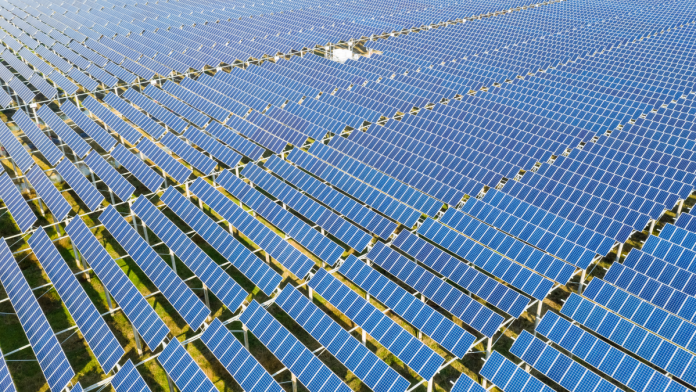Generation

NOA Secures Financing for South Africa’s Largest Single-Asset Solar Project

South African independent power producer and energy trader NOA has achieved financial close on its 349 MW Khauta South Solar PV project, marking a significant milestone in the country’s renewable energy sector. The financing was secured through a payment guarantee facility structured by Standard Bank Group, South Africa’s largest bank.
Once operational, the Khauta South project, located near Welkom in the Free State province, will become South Africa’s largest single-asset solar facility. Construction on the site commenced earlier this year, with the plant expected to begin producing electricity by early 2027.
The Khauta South facility forms part of the broader Khauta solar complex, which will boast a total capacity of 506 MW. In addition to the flagship project, the complex includes the 157 MW Khauta West project, scheduled to come online by late 2026. Combined, the two plants are expected to generate over 1 TWh of electricity annually, supplying power to companies across multiple industries via Eskom’s national grid.
NOA originally acquired the Khauta South project from Pure New Energy in April 2024. The innovative financial structure developed by Standard Bank allows NOA to free up equity capital typically tied up as credit support, thereby accelerating the company’s pipeline of renewable energy developments while fulfilling existing generator power purchase agreements (PPAs).
“This transaction represents an evolution in how we finance renewable energy at scale in South Africa,” said Karel Cornelissen, CEO of NOA, in an official statement.
The deal comes amid a surge in solar power deployment in South Africa. The country installed 1.1 GW of solar capacity in 2024, following a record-setting year in 2023. In April 2025, South Africa approved its Renewable Energy Master Plan, which targets the addition of at least 3 GW of renewable capacity annually, with ambitions to ramp up to 5 GW per year by 2030.
The South African Photovoltaic Industry Association praised the financing structure, calling it “a financial catalyst” that can unlock further private sector investment into the country’s clean energy transition.












